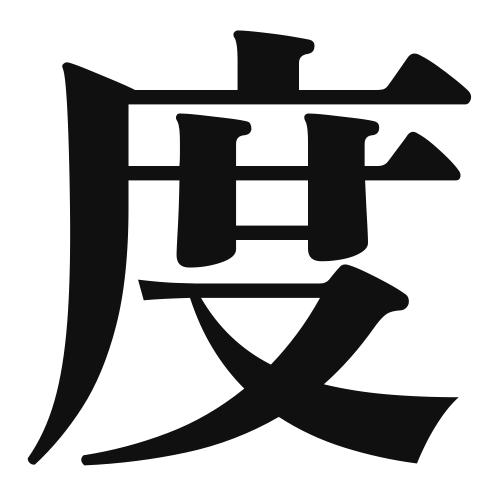1. Overview of Meaning
The kanji “度” (pronounced “do” or “tabi”) primarily means “degree,” “extent,” or “time.” It is used to indicate measurements, frequency, or levels of something.
2. Formation and Radical
Formation of the Kanji: The kanji “度” is a phonetic-ideographic character (形声文字). It combines the radical for “earth” (土) with a phonetic component that suggests its pronunciation.
Radical: The radical of “度” is 土, which relates to the earth or ground, often implying a sense of measurement or foundation.
3. Examples of Usage
Common Words and Phrases:
- 温度 (ondo) – temperature
- 頻度 (hindo) – frequency
- 程度 (teido) – degree, extent
Example Sentences in Daily Conversation:
- この部屋の温度は快適ですか? (Kono heya no ondo wa kaiteki desu ka?) – Is the temperature in this room comfortable?
- 彼の頻度で運動するのは素晴らしいです。 (Kare no hindo de undou suru no wa subarashii desu.) – It’s wonderful that he exercises so frequently.
4. Synonyms and Antonyms
Similar Kanji:
- 程度 (teido) – degree, extent: This term emphasizes the level or measure of something.
- 範囲 (han’i) – range: This refers to the scope or area covered by something.
Antonyms:
- 無限 (mugen) – infinity: This term represents the concept of having no limits or degrees.
5. Cultural and Historical Background
Relation to Japanese Culture: The concept of “degree” is significant in various aspects of Japanese culture, including traditional practices and measurements in arts and crafts.
Proverbs and Idioms:
- 「度を越す」 (do o kosu) – to go beyond limits: This phrase is used to describe actions that exceed acceptable boundaries.
- 「適度」 (tekido) – moderation: This term emphasizes the importance of balance in life.
